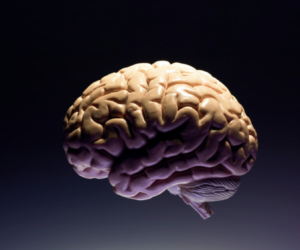Many of us are so overwhelmed by the process of TBI diagnosis, treatment, and traumatic brain injury rehab, that we don’t even think to ask the important questions or understand everything that the doctor says. A good physician will explain the tests, the diagnosis and the necessary rehabilitation in layman’s terms, but some won’t, or maybe the stress of the visit will make you forget as soon as you leave the office.
In Part 1 of this Guide, we’ve explained some of these terms, especially the ones concerning functions and skills. Today, in Part 2, we’ll explain more terms, concerning some of the symptoms of TBI.
Failure to recognize familiar objects although the sensory mechanism is intact. May occur for any sensory modality.
Lack of oxygen to the brain.
The inability to produce voluntary speech due to a deficit in motor (muscle) programming caused by brain damage.
Loss of the capability to perform learned determined movements, regardless of having the will to perform the movements.
A problem of muscle coordination not due to apraxia, weakness, stiffness, spasticity or sensory loss. Triggered by lesion of the cerebellum, or basal ganglia. It can affect a person’s ability to walk, talk, eat and to execute other self-care tasks.

A state in which a patient is bewildered, perplexed, or incapable to self-orient.
Incapability to control impulsive behavior and emotions.
A problem in forming words, or articulating them because of the weakness of muscles used in speaking. Speech is characterized by slurred, imprecise enunciation. Tongue movements are usually labored and the rate of speaking may be very slow. Voice
quality may be irregular, frequently disproportionately nasal; volume may be low; drooling may transpire. Dysarthria may go together with aphasia, or occur on its own.
Difficulty in swallowing. It also comprises a struggle to move material from the mouth to the stomach. This definition also includes difficulty in positioning food in the mouth.
A state of tiredness; the loss of strength or stamina.
Group of symptoms after a concussion that may consist of memory changes, mood swings, poor concentration, headaches, faintness, depression, and nervousness.
Partial loss of function all four extremities of the body.
Loss of function of any injured or diseased cervical spinal cord section, influencing all four body extremities.
Uncontrolled discharge of nerve cells which may spread to other adjacent cells or all over the brain. It typically lasts only a few minutes. It may be accompanied by loss of consciousness, loss of bowel and bladder control and tremors. May also cause hostility, and other behavioral deviations.
Involuntary increase in muscle tone that occurs following injury to the brain or spinal cord, causing muscles to resist being moved.
Condition in which the person doesn’t speak, follow commands, or give any response that is psychologically meaningful.
Stay tuned for the third part of this TBI glossary guide.
NeuLife Rehabilitation is one of the best TBI rehab centers with specialized catastrophic rehabilitation programs for a wide range of catastrophic injuries.
Our programs for traumatic brain injury rehabilitation are customized to meet the individual needs of each patient, and care plans are structured to promote the highest level of functional independence and successful community reintegration. Through the skills and experience of our highly trained team of clinical experts, we are able to treat a wide range of diagnoses and injuries at our brain injury rehab facility.
If you have any more questions concerning neuro rehab, brain injury rehab, or any other issue regarding traumatic brain injury rehabilitation, call us to make an appointment today. You can also schedule a tour to visit our best brain injury facility.
Sources:
https://www.headinjury.com/tbiglossary.htm

The material contained on this site is for informational purposes only and DOES NOT CONSTITUTE THE PROVIDING OF MEDICAL ADVICE, and is not intended to be a substitute for independent professional medical judgment, advice, diagnosis, or treatment. Always seek the advice of your physician or other qualified healthcare providers with any questions or concerns you may have regarding your health.

We know that choosing the next step in your recovery from a catastrophic illness or injury is complex. Together, we can help you take the next step.
Contact us with any questions today.